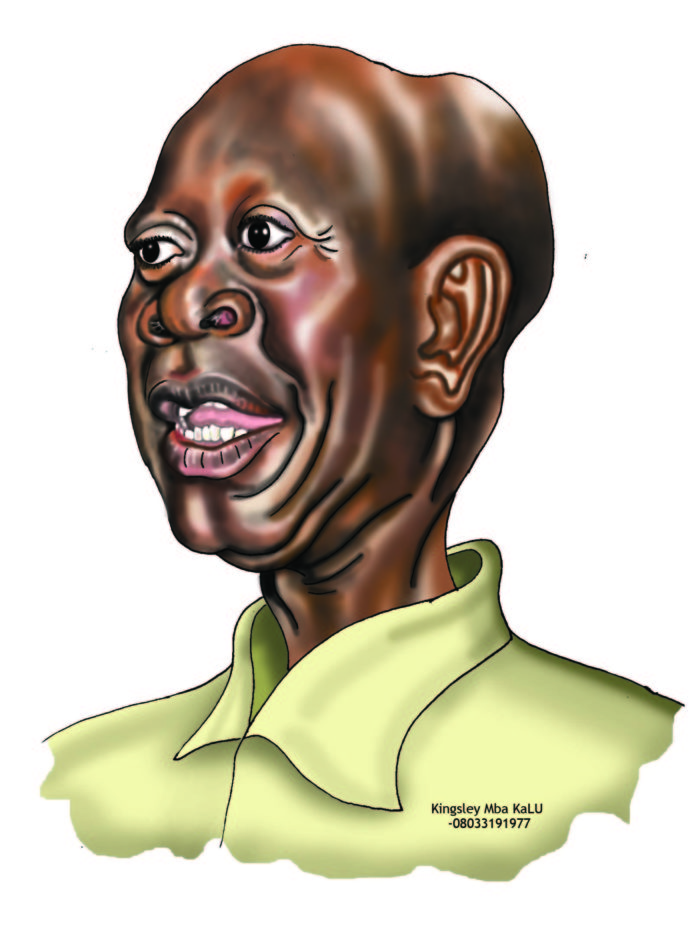By Emeka Alex Duru
Any hope of former Edo State governor, Adams Oshiomhole, returning as national chairman of the All Progressives Congress (APC), was completely dashed on Thursday, June 25, 2020, when the national Working Committee (NWC) which he headed, was dissolved by the party’s National Executive Committee (NEC). That was a high point of the leadership tussle that had pitted him with Victor Giadom, the Deputy National Secretary. Oshiomhole was serving a suspension when he was eventually swept out of office.
In place of the NWC which he headed, the NEC appointed the Governor of Yobe State, Mai Mala Buni, as Chairman Caretaker/Extraordinary Convention Committee of the party. Other members of the team are; Osun state governor, Isiaka Oyetola, ( South West), Ken Nnamani (South East), Stella Okorete (Women Representative)
Governor Sani Bello (North Central) Dr. James Lalu (physically challenged), Abubakar Yusuf (Senate Representative), Akinyemi Olaide (House of Representatives), David Lyon (South- South), Abba Ari (North West), Prof. Tahir Mamman (North East), Ismail Ahmed (Youth) and Akpan Udoedehe (Secretary). NEC’s decision followed the recommendation of President Muhammadu Buhari.
Goodbye Oshiomhole
With the Committee, Oshiomole’s tenure as the chairman of the party came to an abrupt end. The former labour leader came to the national political space in a flash and has fizzled out in fleeting circumstances. Exactly two years ago by this time, he was prodded and planted on the APC as the best thing to have happened to the party. In the ecstasy that had trailed his virtual imposition, the APC Convention scheduled for Saturday, June 23, 2018, turned out a mere formality as the outcome had already been known, three weeks, beforehand. And he eventually clinched the position.
In pushing Oshiomhole’s candidacy, former Lagos governor, Bola Tinubu, pulled all his strings to ensure that the then national chairman, John Odigie-Oyegun was not returned for another term. Realising the magnitude of intrigues against his re-election, Oyegun opted out of the race. He however made a remark that has continued to haunt the party. He said, “I do not intend to be part of the problem for APC to solve. It is for this reason that I hereby declare that I will not be seeking re-election as the national chairman”. That was all that was needed to foist the erstwhile Labour leader on the ruling party.
APC loses grounds
Just as Oyegun had foreseen, APC had been enmeshed in crisis at various levels since the enthronement of Oshiomhole. Issues unsettling the party bordered mainly on absence of internal democracy, imposition of candidates at elections and opaque leadership at the centre. At the last count, the APC which had come to power in 2015 by upstaging the Peoples Democratic Party (PDP), after 16 years of being in the saddle, had lost out even in states that had been regarded as its strongholds. The party had in 2014, taken Adamawa, Bauchi, Sokoto, Plateau, Benue, Katsina, Kaduna, Niger, Kogi, Zamfara, among others from the PDP. Under Oshiomhole, it lost Bauchi, Sokoto, Benue, Adamawa and Bayelsa. It managed to retain Kano and Osun in controversial circumstances. Most of the states were lost on account of highhandedness and obvious leadership failure. Sokoto State governor, Aminu Tambuwal and his Benue counterpart, Samuel Ortom, were for instance, forced out of APC to PDP on account of the dictatorial tendencies in the party. The party literally gave away Rivers and Zamfara to the PDP following crisis resulting from the governorship primaries in the states that produced parallel lists of candidates, each not sanctioned by the Independent National Electoral Commission (INEC). Based on Court pronouncements, the party lost both states from the legislature to the governorship.
In Bayelsa, the APC lost out in an election it had earlier won based on Supreme Court’s pronouncement that it fielded a deputy governorship candidate that had identity crisis. The Apex Court had nullified the election of David Lyon and his deputy, Biobarakuma Degi-Eremienyo, who were already preparing to be inaugurated into office on Friday, February 14.
It ordered INEC to issue fresh certificates to the candidates of the party with the next highest votes and with the required constitutional spread of votes in the results of the election. That was how the PDP and its candidate, Douye Diri, became the eventual winners of the poll.
The Bayelsa episode was the last Oshiomole’s opponent in APC would take in his strings of misadventures. They had actually moved for his removal in February but deft political moves by Tinubu and Buhari’s intervention, offered him some reliefs. Apparently not learning from the past, the deposed chairman embarked on another rancorous route, this time around, with his successor and godson, Governor Godwin Obaseki over the control of Edo politics. He actually had his way in denying the governor a re-election ticket and forcing him to leave the party for PDP. By the move however, he incurred more opposition from other chieftains of the party. When therefore Giadom cashed in on suspension on him to announce himself chairman, it was obvious that the comrade was in deeper mess. What announced that he had been abandoned by the President was when presidential aides informed that Buhari would be participating in a virtual NEC meeting summoned by Giadom. It was at the forum that the comrade was issued a marching order.
Thus came a sudden end to a breezy political profile that had seen Oshiomhole rising the ranks of labour unionism through to Edo governorship and APC national chairmanship. Not given to sophistication and finesse, he had managed to hold on, occasionally turning against even those that had assisted him at one point or another. But it seems, as they say, his time is up!













